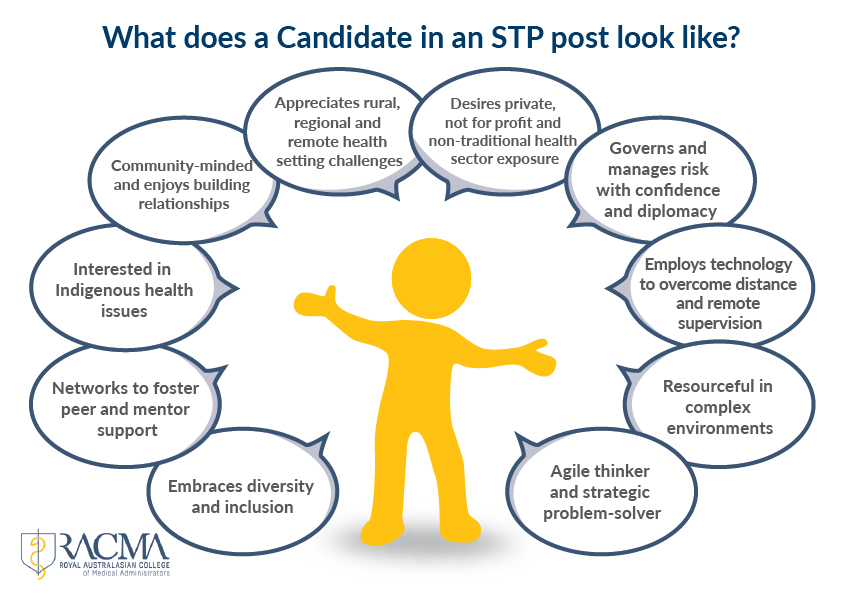

66% rule explained
IRTP posts are designed to enable a Candidate to complete most of their Fellowship training in rural areas with limited metropolitan exposure.
Candidates occupying IRTP funded positions are expected to:
- have a genuine interest to work in rural areas
- commit to spending at least 66% of their total Fellowship training in a rural (Modified Monash Model 2-7) location.
This means that Candidates completing a three-year RACMA training program may spend two years in a rural health setting and one year in a metropolitan area. Limited metropolitan rotations are permitted when training in a metropolitan area is necessary to meet Fellowship Training Program requirements. Ideally, any required metropolitan rotations should form part of the Candidate’s overall training pathway and be identified at an early stage, rather than occurring on an ad hoc basis.
Recording FTE spent in different locations
RACMA is required to report the physical location of where candidates are training for all health settings that receive STP funding.
Candidates are therefore asked keep a record of where time is spent, so that a pro rata calculation can be made of the FTE for each location visited while training.
This information should be included with the biannual Progress Report that is submitted to RACMA by the health setting.
Rural Support Loading (RSL)
In recognition of the additional costs associated with training in regional, rural and remote locations, Rural Support Loading (RSL) is intended to incentivise IRTP trainees to undertake training in regional, rural and remote locations. It aims to reduce some of the barriers for both the trainee and/or health setting hosting the trainee.
“Rural” is defined as being located in a Modified Monash Model (MM) 2-7 area. To check if your health setting is within the MM 2-7 area, visit the DoctorConnect website.
RSL payments are managed in accordance with the Department of Health’s RSL Guidelines. IRTP health settings may claim RSL for eligible expenses of up to $20,000 (GST exclusive) per 1 x FTE per annum. RSL is linked to the specific training position and is not paid directly to Candidates.
How RSL can be used
Rural support loading can be used to pay for the following trainee incurred expenses:
- Accommodation costs – accommodation / rent subsidies
- Purchase of resources – text books, computers, tablet, phone, journal subscriptions
- Attendance at training courses, meetings and conferences (within Australia only)
- University fees for Masters component for RACMA training
- Video conferencing facilities – equipment, installation, software
- Broadband access / IT upgrade and or access, IT hardware relating to the training post, not the entire site
- Research project requirements – access to online library, laboratory equipment, subscriptions
- Relocation costs – flights, household removal, vehicle removal
- Travel costs – flights, car mileage, taxis and costs associated with attending teaching sessions such as lectures, tutorials, conferences, meetings within Australia.
- Travel expenses related to day-to-day travel between health settings within a region for the purpose of training – car hire, use of vehicle, flights
How To claim RSL
- To claim expenses, health settings are required to complete an RSL CLAIM FORM.
- The Claim Form is submitted twice annually in February and August and payments are made in arrears.
- Candidates must liaise with their Supervisor to receive reimbursement for any expenses incurred.
- Candidates experiencing difficulty in claiming expenses from their health setting should contact RACMA via stp@racma.edu.au.
STP Candidate Survey
On completion of your training in an IRTP-funded position, Candidates are asked to complete an online STP Candidate Survey. This survey seeks feedback to provide RACMA with data to ensure that the STP delivers its intended outcomes to candidates. This de-identified feedback is used for project reporting purposes for the Department of Health (Australia).


